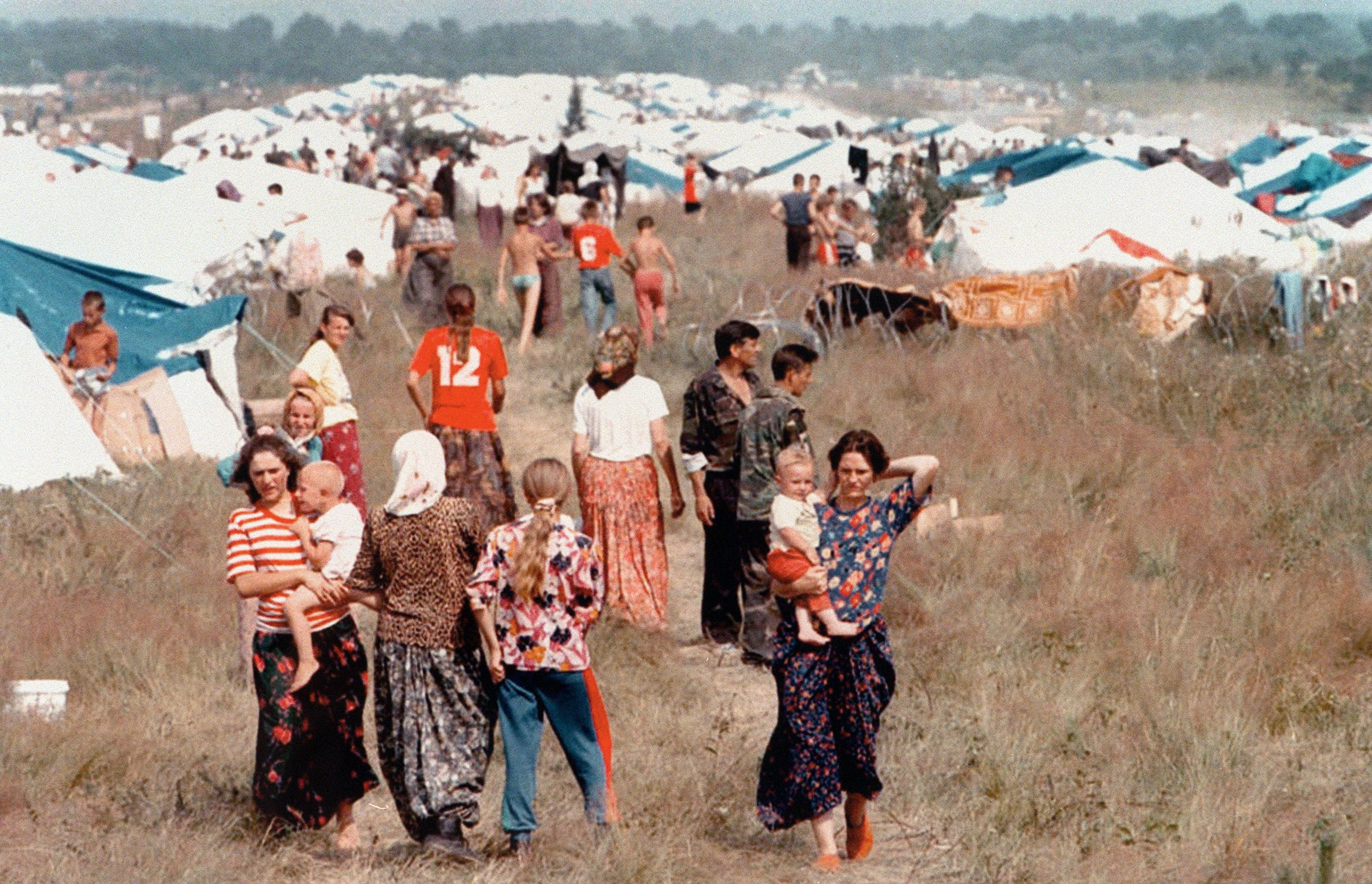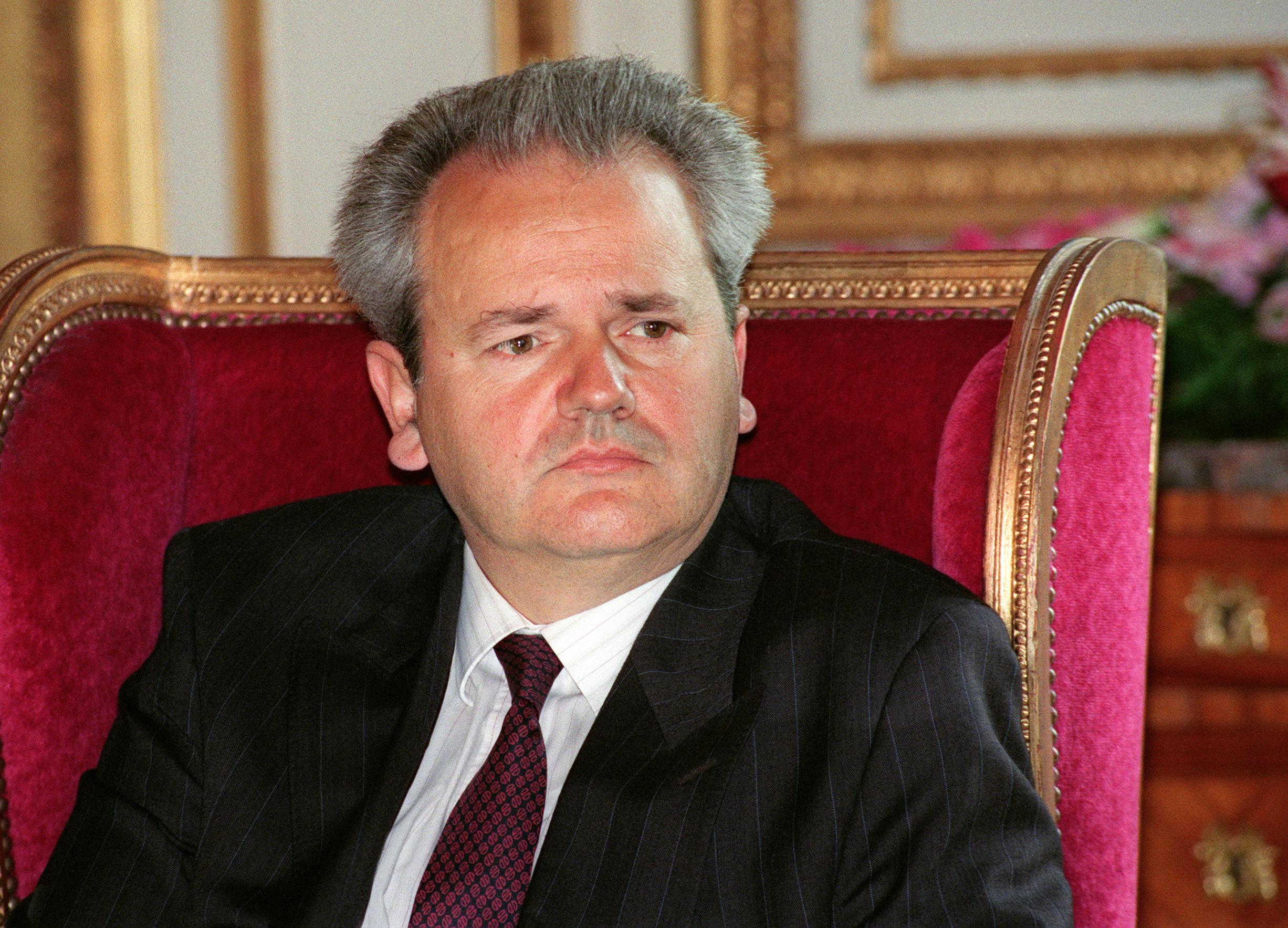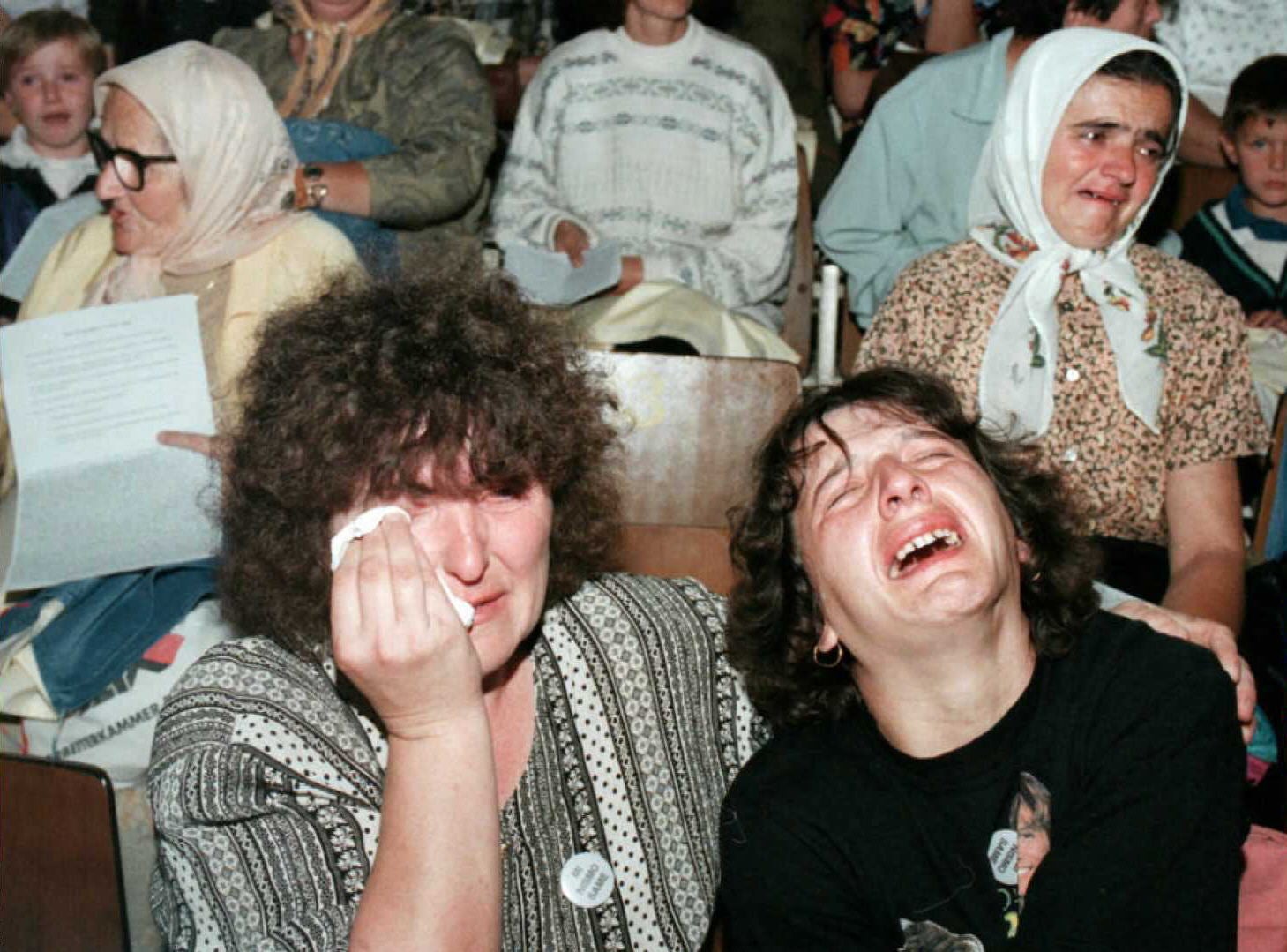Our shame over Srebrenica
July 2001: Robert Fisk returns to the town where General Ratko Mladic reassured the women no harm would come to their men


The trees were heavy with rain and ice when I stopped the car a few miles from Srebrenica. I could hear the wind seizing the branches, shaking them until the water riffled off in a thick spray over the road. Bosnia often presented beauty in places of horror. When I turned to Liljana and asked if she could imagine how many bodies lay under the snow, she shuddered.
“Do you know why they opened the graves of the murdered Croats in 1991?” she asked me. “They wanted us to hate the Serbs who had killed the Croats in the Second World War. That’s why they opened those old graves – to pour more blood into them.” Now it was 1996 and the bodies of the Muslims of Srebrenica had lain beneath the snow – and in the mass graves beneath – for more than a year. I knew why Liljana did not want those graves opened. They would reveal not just the Muslim dead but the shame of the Serb murderers. Our shame, too.
Srebrenica in 1996 was a sinister, haunted place. After the Muslims of the town had been murdered and raped and the survivors trucked to the Muslim lines opposite Tuzla, Serb refugees had taken their place, stuffing their families into the smashed homes of the victims of the Srebrenica massacre, living on hand-outs and loot and UN funds. The Serb police – the same “police” in their dark blue cars and little blue flashing lights who had driven through the fields of corpses in 1995 after Ratko Mladic’s boys had left the dead to bloat amid the July corn – now moved through the town.
The west’s humiliation at Srebrenica – specifically that of the Dutch UN battalion that allowed the Serb victors to separate the Muslim women and children from the men who were to be murdered, but also the UN and now Nato’s pusillanimous commanders – was still not fully recognised. Up the Drina Valley, a group of war crimes investigators had gingerly dug into one mass grave under the grudging protection of Nato troops. We all knew that General Ratko Mladic was responsible and – by extension – the Bosnian Serb leader Radovan Karadzic. But no Nato units dared approach them.
On the outskirts of Srebrenica, at Potocari, lay a great concrete block, partly overgrown but still white painted and bearing the clear words “UN HQ DUTCHBATT”. The gate lay open, the refuse of the Dutch battalion of the UN Protection Force (UNProfor) – those who had stood by as the thousands were taken away to the slaughter – still littered the UN’s abandoned watchtowers, its mess and headquarters offices, its medical post and its commanding officer’s billet.
I got out of the car and walked through the swinging iron gate. Here it was – I recognised the exact location from a Serb television tape – that Mladic reassured the women of Srebrenica that no harm would come to their menfolk. “Hvala” – thank you – they had chorused.
At Srebrenica, the Dutch meekly surrendered their weapons, their armoured vehicles, even their uniforms. The Serbs were allowed to hunt through the UN headquarters for Muslims
Heaps of Dutch documents were left on the floor. The main phone lines were still intact. There were easy chairs and benches for the Dutch UN’s outdoor cafe and a list of instructions for cheap rate calls to Amsterdam and Rotterdam. The Dutch, one couldn’t help thinking, knew how to look after themselves at Srebrenica. Massive concrete slabs still protected the office of the Dutch commanding officer, Lieutenant Colonel Tom Karremans who, at a critical moment in the Serb occupation, declared himself sick. When I walked into Karremans’s office, a middle-aged Serb man was picking potatoes in a field next to the old UN base. “UNProfor,” he shouted at me, and hooted with laughter.
I could understand that hollow laughter. I still hear it. For in our glee at the arrest of Slobodan Milosevic and his transfer to The Hague, we have forgotten how blithely we ignored Mladic and Karadzic in the years that followed Srebrenica. It was at least a year before we began digging seriously for the Muslim dead; and all the while Nato declined to arrest the two men.
The lives of Nato soldiers, it seemed – and how well we remember this from the Kosovo war three years later when the Serbs spent weeks “ethnically cleansing” the Kosovo Albanians while well-armed troops stood on the border and watched – were more important than justice for the Muslims of Bosnia. The EU’s former high representative in Bosnia was to express his disgust at the refusal of the first US Nato commander in Bosnia – an admiral, no less – to pursue the war criminals.

We all knew at the time that Mladic was hiding in his bunker at the military base at Han Pijesak, protected by his praetorian guards. I even dropped by to request an interview, the soldiers at the gate cheerfully admitting his presence. Of course, I received no response. Why should he talk to me when French and US troops regularly drove past the front gate of his barracks without so much as a glance in his direction?
The Dutch published their own miserable, chilling account of Srebrenica. But Karremans was packed off to become Dutch military attache in Washington, under orders not to talk. And silent he was, to the great relief of the Dutch. His interpreter at Srebrenica, Hasan Nuhanovic, told me in 1996 how, at the last Ramadan feast before the fall, Karremans had been invited to drink rakija with the Muslims.
“I told one of the UN officers to tell Karremans I was happy because it was the first time I had seen him smile,” Hasan told me. “I saw Karremans giving the officer a return message for me. His reply was: ‘You are an arsehole.’”

Karremans has also never commented on this extraordinary episode. Nor has he ever talked about his UN service in southern Lebanon years earlier – he was Captain Karremans then – when the Dutch battalion was humiliated by local Shia Muslim guerrillas for staging a pop concert outside a mosque and when one Dutch UN captain was made to lie on a Lebanese road and disarmed in front of his men. Was it Karremans?
At Srebrenica, the Dutch meekly surrendered their weapons, their armoured vehicles, even their uniforms. The Serbs were allowed to hunt through the UN headquarters for Muslims they had not already trucked off to the killing fields. Hasan’s mother and father and younger brother were ordered out of the UN compound by Dutch officers, never to be seen again.
Yes, Mladic should be in The Hague for this. But does this mean that the Dutch are now absolved, permitted to remain silent, to encourage Karremans to keep his mouth shut?
I do recall all too well how, during Nato’s bombing of Yugoslavia three years later, Serbs would tell me that the west was bluffing about war crimes. Over and over again, they would ask me why – if Nato believed war crimes were being committed in Kosovo (which, of course, they were) – they hadn’t arrested Mladic and Karadzic after Srebrenica? Was there a secret deal at the Dayton “peace” conference to leave the murderers untouched? After all, Milosevic was at Dayton, treated with respect by the Americans whose troops have left Mladic and Karadzic untouched to this very day.
And it was at Dayton that the Kosovo Albanians pleaded for their own oppression to be considered. They were sent packing. No one wanted these pesky Muslims from Kosovo upsetting the peaceful entry of Nato forces into Bosnia. Which is why I suspect that our shame at Srebrenica, our equally humiliating failure to hunt for Mladic and Karadzic in the years that followed, our refusal at Dayton even to talk to the Albanian delegation, led directly to the tragedy and crimes of Kosovo.
This week, our masters will remind us of Serb war crimes. Rightly so. But maybe we should also remember the Dutch officer who abandoned the innocents, the Nato soldiers who let the war criminals roam around Bosnia for years after they had committed their atrocities, and the way in which we so arrogantly refused to safeguard the Serbs’ next victims.




Join our commenting forum
Join thought-provoking conversations, follow other Independent readers and see their replies
Comments